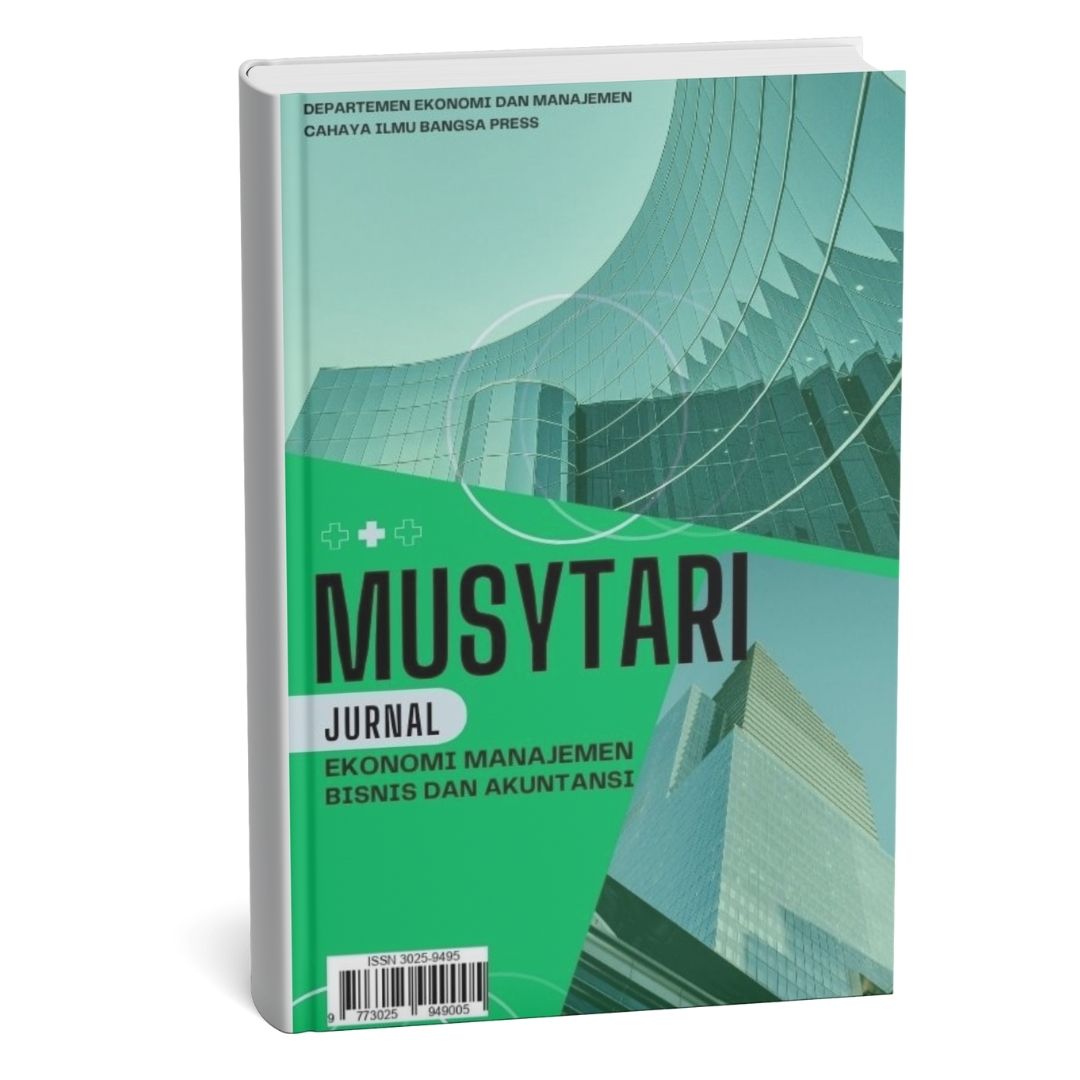Analisis Laporan Keuangan Sebagai Alat untuk Menilai Kinerja Keuangan Perusahaan pada PT. GoTo Gojek Tokopedia Tbk Periode 2020–2023
Published 2025-07-01
Keywords
- Financial performance, liquidity, solvency, profitability, GoTo
How to Cite
Abstract
This study aims to evaluate the financial performance of PT GoTo Gojek Tokopedia Tbk during the 2020–2023 period using a financial ratio analysis approach, including liquidity, solvency, and profitability ratios. The data were obtained from the company’s annual financial reports. The results show that the liquidity ratios are healthy, with the cash ratio consistently above 1, reaching 2.91 in 2020 and remaining above 1.9 in 2023. Solvency ratios, although still within acceptable thresholds (DAR between 10–34%, DER between 0.12–0.51), show a rising trend in liabilities and declining equity that warrants attention. Meanwhile, profitability ratios reflect an unhealthy condition, with Return on Assets (ROA) consistently negative and hitting -167.33% in 2023, and Return on Equity (ROE) reaching -253.41% in the same year. Overall, approximately 66% of key financial indicators (solvency and profitability) show unhealthy conditions, while 34% (liquidity) remains in a strong position. These findings offer critical insights for management and stakeholders in planning strategic financial improvements.
References
- Budhiarjo, I. S., Nurfitriana, N., Dewi, W. C., Nurcahayati, S., & Cay, S. (2022). The effect of Debt to Assets Ratio (DAR) and Debt to Equity Ratio (DER) on Return on Assets (ROA) at PT Phapros Tbk. Jurnal Ad Ministrare, 9(2), 721. https://doi.org/10.26858/ja.v9i2.42930
- Delfiani, S., & Febriyanti, H. F. (2024). Analisis Laporan Keuangan PT GoTo Gojek Tokopedia Tbk Periode 2021-2022 Dengan Rasio Likuiditas untuk Mengukur Kinerja Keuangan. Menara Ilmu, 18(1). https://doi.org/10.31869/mi.v18i1.5242
- Harvard Business Review. (2015, July 2). A refresher on debt-to-equity ratio. https://hbr.org/2015/07/a-refresher-on-debt-to-equity-ratio
- Kusuma, H. P., & Alviana, K. (2023). Analisis laporan keuangan untuk menilai kinerja PT. GoTO Gojek Tokopedia Tbk (GOTO). Syntax Literate Jurnal Ilmiah Indonesia, 7(9), 14933–14943. https://doi.org/10.36418/syntax-literate.v7i9.13829
- Lukman, A. A. (2025). Financial Report Analysis to assess the performance of PT. Goto Gojek Tokopedia Tbk (GOTO). Syntax Literate Jurnal Ilmiah Indonesia, 10(3), 2638–2649. https://doi.org/10.36418/syntax-literate.v10i3.55616
- Meidi Yanto, M., Marbiyanov, B., Fitrah, M. N., Permana, R. S., Manurung, R. M., & Wiratama, Y. A. (2025). Analisis kinerja keuangan pasca pandemi Covid-19 pada perusahaan GOTO Gojek Tokopedia Tbk. Jurnal Ekonomi Manajemen dan Bisnis (JEMB), 2(6), 352–357. https://doi.org/10.62017/jemb.v2i6.5198
- Nurjanah, S., Universitas Pakuan, & Universitas Pakuan. (2024). ANALISIS KINERJA KEUANGAN SEBELUM DAN SESUDAH AKUISISI DAN MERGER PADA PT. GOTO GOJEK TOKOPEDIA TBK TAHUN 2017 – 2022. JATAMA: Jurnal Akuntansi Pratama, 1. https://jatama-feb.unpak.ac.id/index.php/jatama/article/view/103/70
- Utama, S., Purmono, B. B., Malini, H., Mustarudin, M., & Wendy, W. (2023). The influence of debt equity ratio and times interest earned ratio through Return on Assets on banking companies’ share price. International Journal of Applied Finance and Business Studies, 11(3), 418–429. https://doi.org/10.35335/ijafibs.v11i3.177
- Utami, A. P., Andriani, N., Lestari, T. A., Fitrisam, S. A., Iskandar, R., & Luneto, A. R. (2024). The effect of Debt to Asset Ratio (DAR), Debt to Equity Ratio (DER), and Current Ratio (CR) on Return on Assets (ROA) in property companies listed on the Indonesia Stock Exchange in 2022-2023. Indonesian Journal of EconomyStudies, 3(1). https://doi.org/10.63828/ijes.v3i1.67
- Wulandari, N. A., Hidayati, N., & Jatmiko, U. (2024). Return on Assets (ROA), Debt to Asset Ratio (DAR), and Current Ratio (CR) on financial distress in food and beverage companies listed on the Indonesian Bursa Efek (BEI) period 2020–2022. AMMER: Journal of Academic & Multidiscipline Research, 4(01), 8–15. https://doi.org/10.32503/ammer.v4i01.5379

